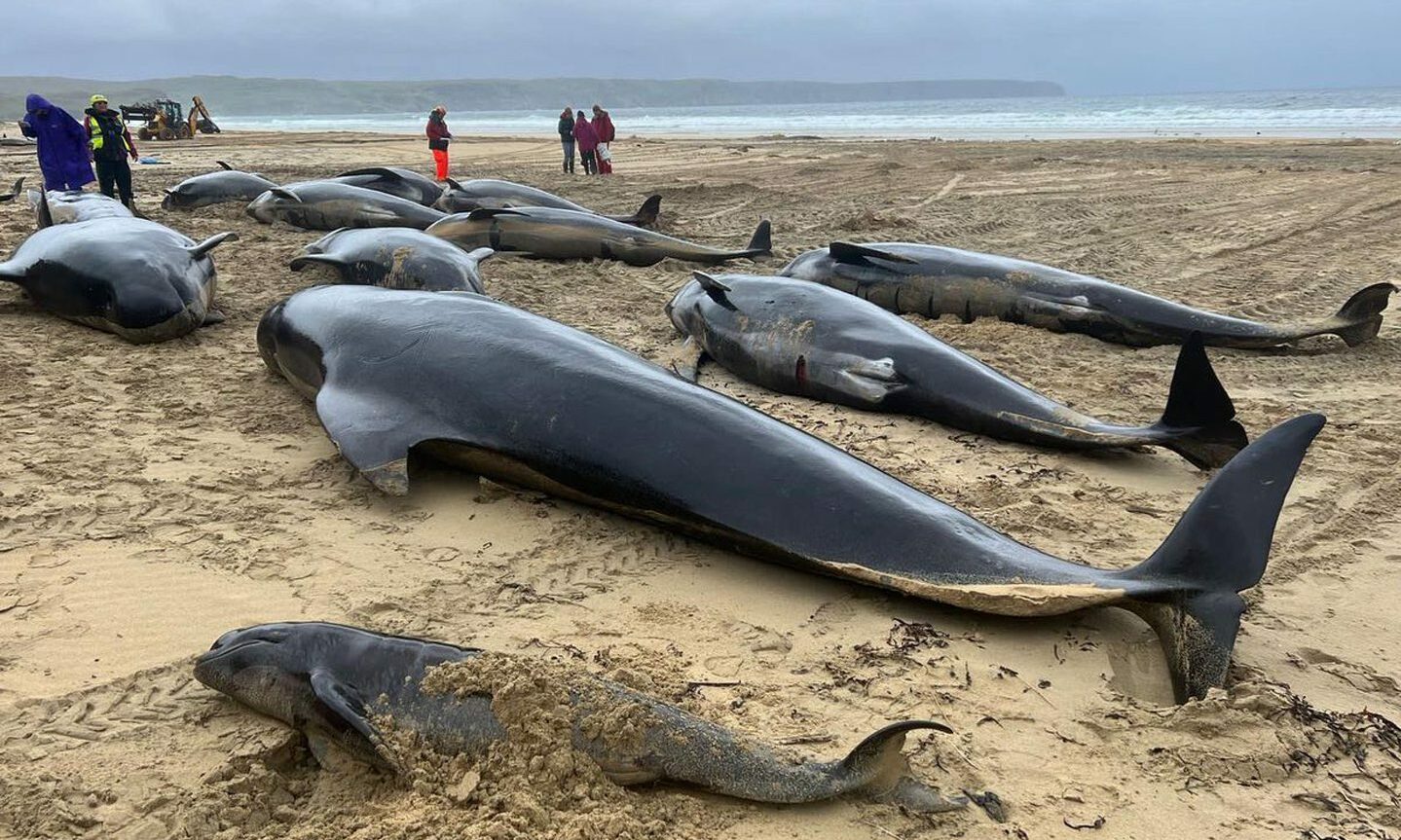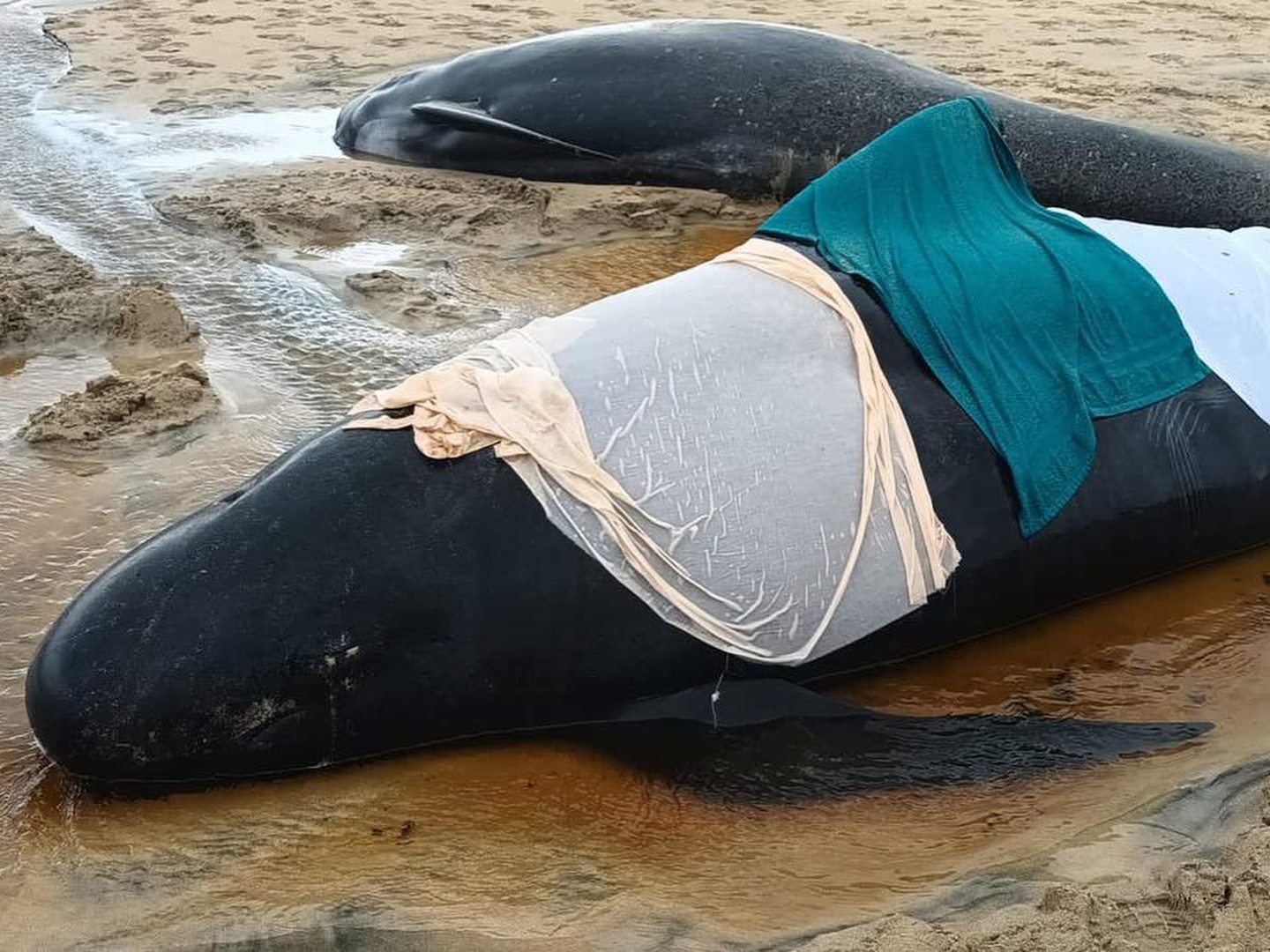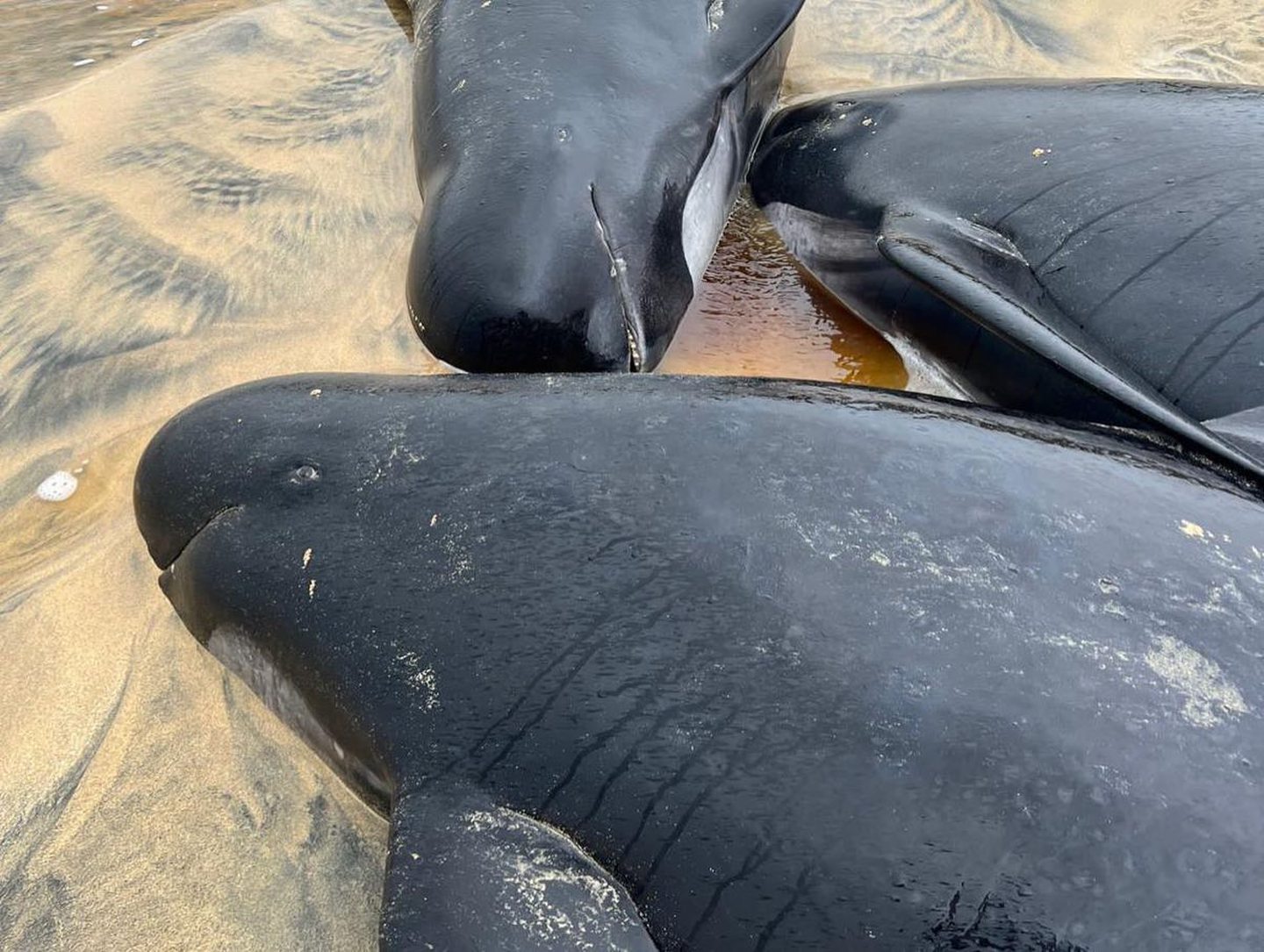Marine experts from across the UK are travelling to the Western Isles today after 55 pilot whales got stranded on a beach near Stornoway.
All-but-one of the mammals died amidst tragic scenes at Traigh Mhor on Lewis despite the best efforts of rescuers yesterday.
It is the largest marine stranding in Scotland for the last 10 years.
Today investigators will begin the massive task of examining the dozens of dead whales to determine what caused them to become stranded.
International interest in Western Isles incident
Huge pilot whale strandings have been reported across the world in recent years due to them being very sociable and forming strong bonds within pods that can cause them to follow each other into trouble.
In 2020, about 470 of them became stranded at Macquarie Harbour in Tasmania with a further 230 getting stuck in 2022 on the island’s west coast.
The mass pilot whale stranding at the weekend near Stornoway is believed to be one of the largest of its kind in Scotland since about 120 came ashore near Dornoch in the 1920s.
Experts from Australia have already been in touch with Scottish teams to offer assistance and advice about the latest incident.
Investigators, however, now say they face a “race against time” to examine as many of the pilot whales as they can.
It is believed that one of the females may have become injured giving birth, which may have led to them coming close to the shore.
Andrew Brownlow, who heads up the Scottish Marine Animal Stranding Scheme, told BBC Radio Scotland that teams who are arriving from across the country are keeping an open mind about the cause, but will be working to examine whether there has been any human impact.
He said: “There are a number of reasons these animals strand. It has happened for centuries.
“It isn’t necessarily the case it’s because of human impact, but that’s one of the things we want to investigate and to rule out to see whether or not some of the things that can affect these animals such as underwater noise, interaction with fishing gear, accumulation of toxins or disease may have played a part.”
What will happen to pilot whales now?
The pilot whales that became stranded in the Western Isles have already been moved to the landfill site near Stornoway.
There investigators will become post-mortems on as many of them as possible to try and learn as much from them as possible.
Mr Brownlow said the teams already have a “fairly clear” idea about what happened but say there is still much to learn from them.
The Glasgow University academic said crews will take samples from whales that appear to represent a cross-section of the pod.
Due to the number of whales involved, a decision has been taken to move them from the beach for the investigations.
Mr Brownlow told BBC Radio Scotland: “There are other options in situations like this.
“They can be left on the beach to decompose, they form a really important part of the natural nutrients cycle, so wherever possible it’s good to bury them on the beach.
“In this particular case I think a decision has been made to take them to landfill, which is understandable because this is an amenity beach and there are lots of people who use it and burying 54 pilot whales is not a trivial undertaking.
“There are other things that can be done with them but here, now, with this situation, IS think we are looking at burial as the only option.”


